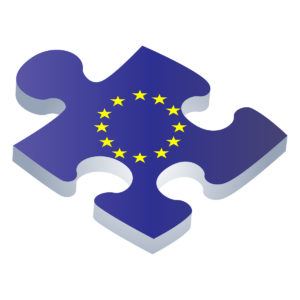BRUSSELS — To foreigners, an oddity of U.S. diplomatic practice is the long gap between postings caused by Capitol Hill’s approval procedure when replacing one envoy with another.
In contrast, most other foreign services put a premium on slipping the next Excellency into his or her predecessor’s place as soon as possible, and the incomer’s name is known even before the valedictory cocktails are out of the way.
And there’s another thing debated locally when any American embassy change-over takes place: Will the job be a State Department choice (career) or be the happy gift of a president (political appointee)?
Frankly in most cases these two characteristics of the State Department’s continuum don’t much matter, the hum of diplomacy continues anyway under a put-upon Charge d’Affaires.
But what about the post of the representative of the United States of America to the European Union?
Highly regarded Anthony L. Gardner left that post just before Christmas 2016 — well over a year ago — and has yet to be replaced. This does not sit well with the European Union authorities who deploy 140 missions round the world.
The continued absence of a U.S. ambassador in the “capital of Europe” is, therefore, not only a painful jab in EU officials’ pride but has serious practical consequences as well for a relationship in goods and services worth an annual $1.1 trillion.
What precisely does “America First” mean for the 28-member EU? Few, perhaps no one, can know with certainty.
Is the continuing failure to nominate an ambassador a calculated snub or just the normal vagaries of choice? To what extent does it represent America’s growing isolation — or “Exitismus” as it’s known in think tank circles?
One clearly irritated EU ambassador told me of the urgent need for a “valued interlocutor” from Washington — someone who carries the president’s authority to shape trans-Atlantic relations at a time when, arguably, they have never been worse or more volatile.
The EU’s proposal for a “digital tax” to raise more revenue from high-tech corporations such as Google, Apple and Facebook has done nothing to improve Brussels-Washington relations. In the defense and security areas, the Middle East continues to vex both sides. President Trump has made known he’s angry that some NATO members, most notably Germany, don’t pay their full dues to the alliance.
As the leading German weekly Die Zeit acknowledges: “There is nothing to romanticize about the trans-Atlantic relationship but rather a lot to repair” and there’s little time.
On May 1, Trump will drop the temporary reprieve from tariffs on U.S. steel (25 percent) and aluminum (10 percent), but the EU wants a permanent exemption, according to the French and German leaders and European Commission President Jean-Claude Juncker, who said last week that deadline is impossible to meet.
Some officials fear the steel tariff issue could be the opening shot in a threatened trans-Atlantic trade war with retaliation targets Harley-Davidson, bourbon and Levi’s jeans among 200 other U.S. brands; more optimistic Europeans point out trade spats are nothing new, part of the weather.
Beyond dispute, however, is the need for an authoritative U.S. point man, an ambassador to the EU who can finesse political messages coming out of the White House.
The Trump presidency has disturbed most previous European assumptions about U.S. policy. Straightaway the new president dumped the pending Atlantic free trade agreement, then he opted out of the Climate Change deal so carefully crafted in Paris.
European anxiety grew when one of Trump’s friends, Ted R. Malloch, was — apparently — to head up the U.S. Mission in Brussels. During a short visit last spring the former businessman/academic caused offense by claiming on TV the EU’s common currency, the euro, would fail, and moreover the EU had become anti-democratic and anti-American.
He also claimed the Trump administration “is no longer interested in the old form of European integration.”
Since then the Malloch prospect has faded — to be replaced by who?
EU institutions, the Commission, the Council and the European Parliament, not to mention 28 chancelleries, are impatient to know. When the choice is finally made, it will be a defining moment in Atlantic relations.

